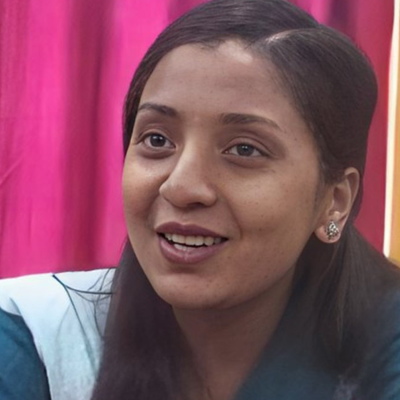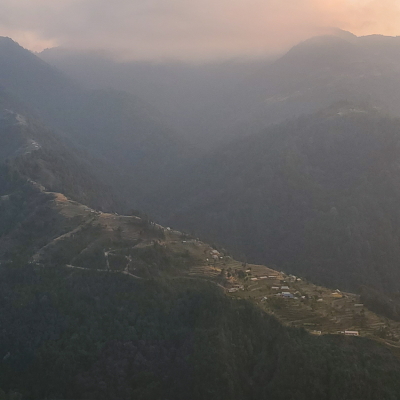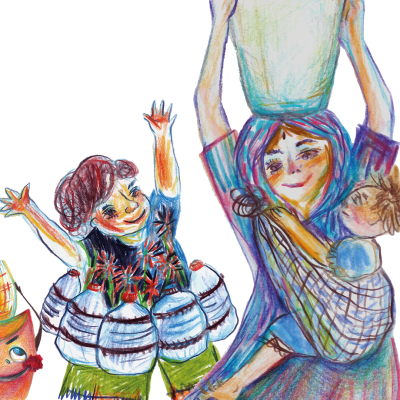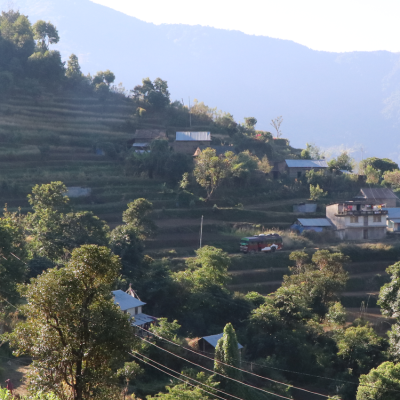Written by: Ness Ma (Communications Officer)
My colleagues and I had a trip to Nepal. We met our partner (Samari Utthan Sewa) in the southern part of the country for a new project, ‘Prevention of Trafficking and Exploitation of Women and Girls in the Adult Entertainment Sector’. We would like to know the progress of the newly launched project on-site. Unexpectedly, one of the stops turned out to be a visit to a ‘nightclub’.
We were overwhelmed by the raucous singing and accompaniment in the nightclub that we had to shout to hear each other. Almost every customer around us was puffing out clouds of smoke. They walked up to the stage and swayed their bodies to the music. As for the dancers on the stage, they were all engaged in powerful dance moves. When a song ended, the singers and the dancers became stone-faced and went backstage to rest. When the music was back, they went back to the stage with smiles.
Their big bright smile is clearly commercial to me. It may sound as if I have some assumptions about the industry, but if you have also listened to the sharing of this group of AES (Adult Entertainment Sector) practitioners, the Nepalese girls, you might probably think likewise.
From knowing this group of AES girls to being invited by them to their nightclub show, all happened in one afternoon. On that day, in a hotel, my colleagues and I interviewed some of the AES girls who were invited by our partner. They are the beneficiaries of the project ‘Prevention of Trafficking and Exploitation of Women and Girls in the Adult Entertainment Sector’ which was launched by CEDAR and our partner in August 2022.
I did not know much about the industry, so I kept asking our partner questions on the way to the interview. According to our partner, adult entertainment venues are not sex trade venues but places for songs and dance performances. Once the sex trade is involved, it is illegal. Therefore, the girls we met indeed work in a legitimate nightclub.
The Exploited Minority
Maybe you would ask if they have a legitimate job; what is the role of CEDAR? The eight girls joining our interview shared with us how they had always been exploited.
1. Appalling pay: They work from 6:00 pm to 12:00 am (or even 2:00 am) every day. They dance and sing but only earn up to 10,000 Nepalese rupees (about HK$600) per month. Lunch in the urban area costs about 500 Nepalese rupees (about HK$30). In other words, even for the workers with the highest pay among them, their income can barely meet their expenses. Because of the meagre income, some girls chose to provide sexual services.
2. No safety net: there were dancers among the girls we met. However, there were no first aid kits in the nightclub for possible dance injuries. Once injured or sick, they do not want to seek medical attention because it may exhaust half of their monthly income (a girl wore a mask during the interview, and she kept coughing throughout the night when she danced. It was heart-breaking.)
3. Unfair treatment: One of the girls told us that her boss had attempted to rape her. Even though there was supporting CCTV footage, the police still accepted the explanation of the boss: as he was drunk, he mistook her for his sister, and that rape attempt was a family hug. Meanwhile, the girls also have to face illegal deductions from their wages by their employers (or even refuse to pay wages). These girls would have no access to any kind of legal assistance.
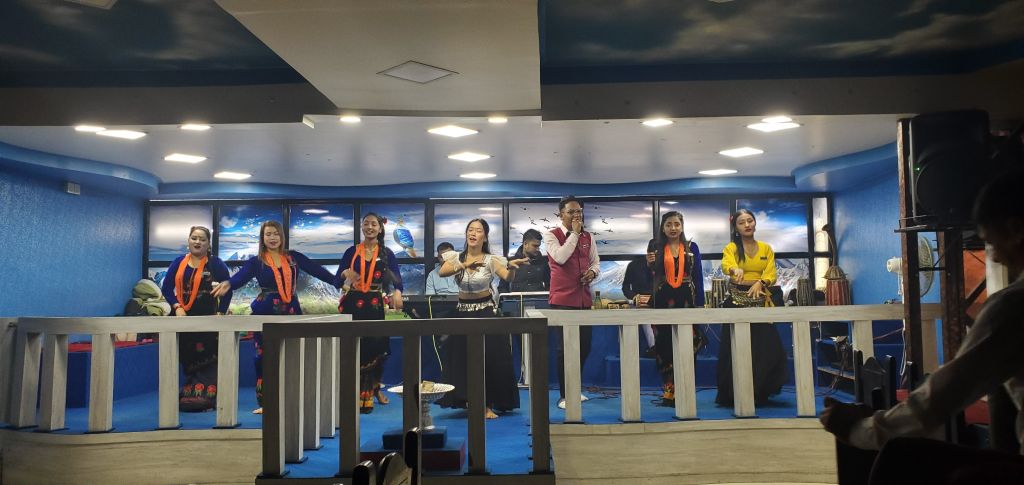
Why do the girls have to endure unfair treatment and put on a commercial welcoming smile for guests every day but not leave or switch to other industries? This is all about their family background. They told us that they were all born in rural families. Their parents inflicted early marriage on them. The only way to resist this coercive culture was to leave home, and now they are homeless. And because of the destitution that runs in the family, they do not have the opportunity to receive an education, so they also lack the skills to earn a living.
The Dalits
Those girls grew up in rural families. Suppose they were also the Dalits (also known as ‘the untouchable’, at the bottom of the caste system). According to a survey by our partner, 80% of the employees in the adult entertainment sector are Dalits. Although the caste system in Nepal has already been abolished, the locals are still stuck in a discriminative mindset against the Dalits. For example, even if they are sexually assaulted or beaten to death by non-Dalits, the cases are usually dismissed. The Dalits can only take low-paid, labour-intensive jobs, such as cleaners. If a Dalit runs a small business, no one would be willing to invest in the business. In general, the Dalits have fewer educational and career opportunities than the non-Dalits. Among the eight girls we interviewed that day, six were from Dalit families. We were sorry to hear one girl’s story of being rejected by her husband’s non-Dalit family in inter-caste marriage.
While it may be true that some girls decided to stay because they love performing on stage and earning a living, many were forced to work in the sector to make ends meet. At the end of the interview, some girls expressed their wish to leave the industry, but there were no other ways of living. Some said they wanted to stay but hoped to work with dignity.
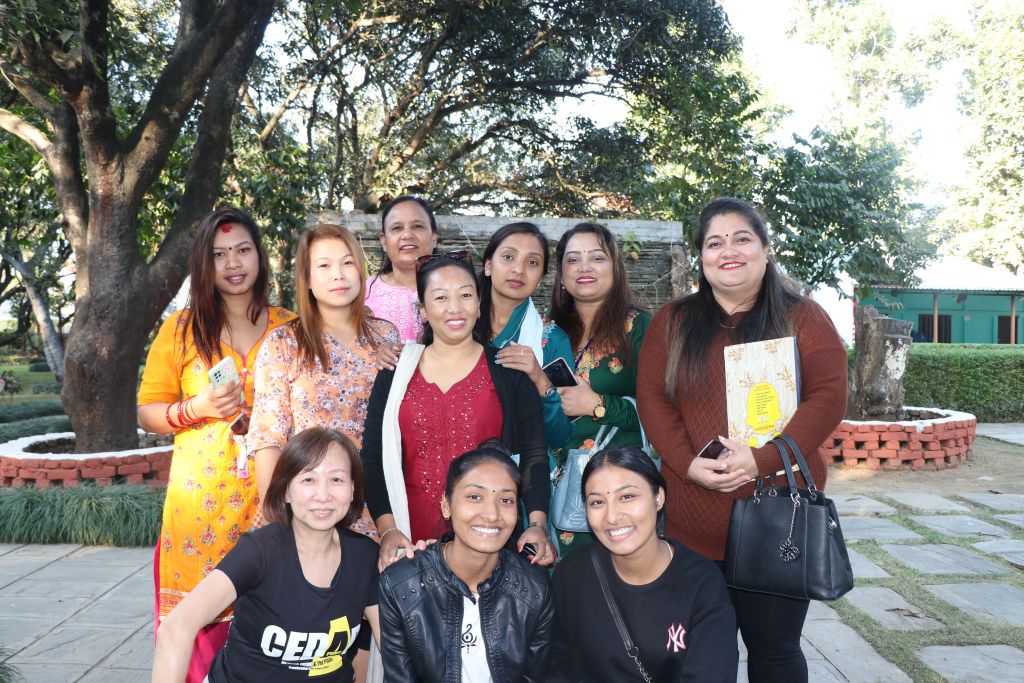
Vision
In response to the needs of the girls in the adult entertainment sector, CEDAR and our local partner cooperate to improve their living and working environment with the following interventions: establishing a network of workers, advocating workers’ rights to employers, and providing vocational training. In this ministry, we envision a safe working environment for the girls and, at the same time, freedom to leave the industry. We also strive to protect the rights of the Dalits, such that they receive fair treatment at the workplace.
This project was initiated in August, and a network of workers in the adult entertainment sector has already been established. However, it is still unclear whether they can voice their rights against their employers. Because of their sharing, some of the people working in the sector think they are making trouble in their community.
When we left the nightclub, I ruminated over the tears of those girls and their smiles on the stage which I witnessed in the afternoon. Supposedly, the nightclub is a place for entertainment, but my colleagues and I were upset all along. After the talk in the afternoon, we already felt like friends with those girls, and they even invited us to their show. How could they enjoy life while being forced to welcome guests with a commercial smile every day? They were hiding away their tears in front of us. I pray that the road ahead for those girls will be less challenging and that they will be able to live with dignity and joy in the near future.
ARTICLES OF THIS ISSUE
Written by: Ness Ma (Communications Officer) My colleagues and I had a trip to Nepal. We met our partner (Samari Uttha…
Written by Ness Ma (Communications Officer) In November 2022, the 27th session of the Conference of the Parties of the…
Previous Next children living in disasters Floods, droughts, heatwaves… as adults struggle with different natural disa…
Written by Samuel Chiu “If you, Israel, will return, then return to me,”declares the Lord.“If you put your detestab…



